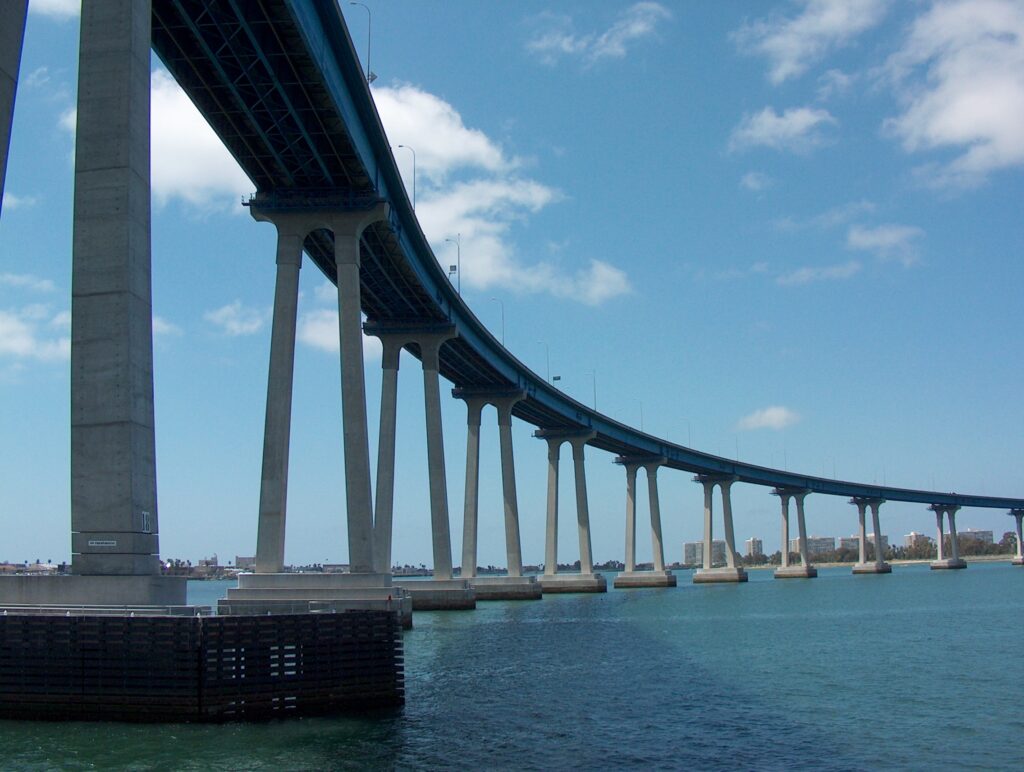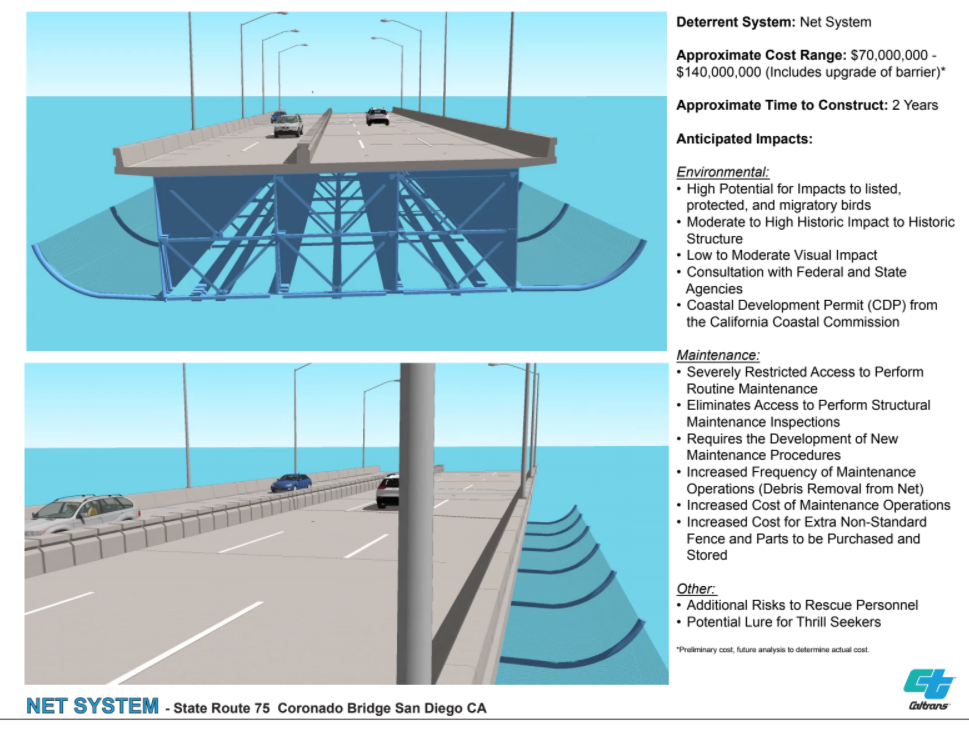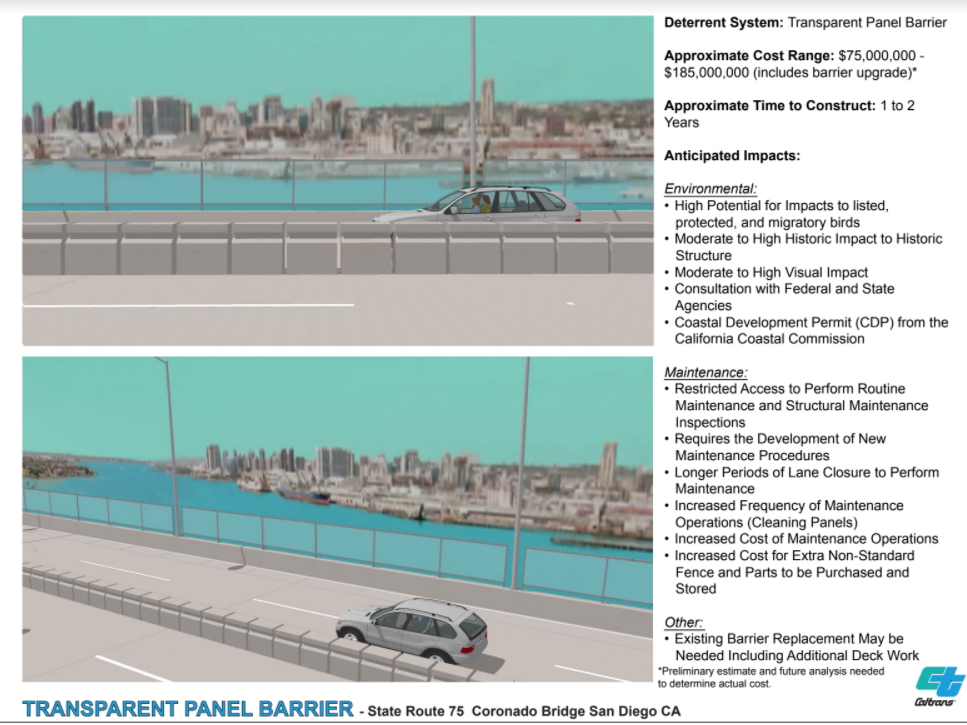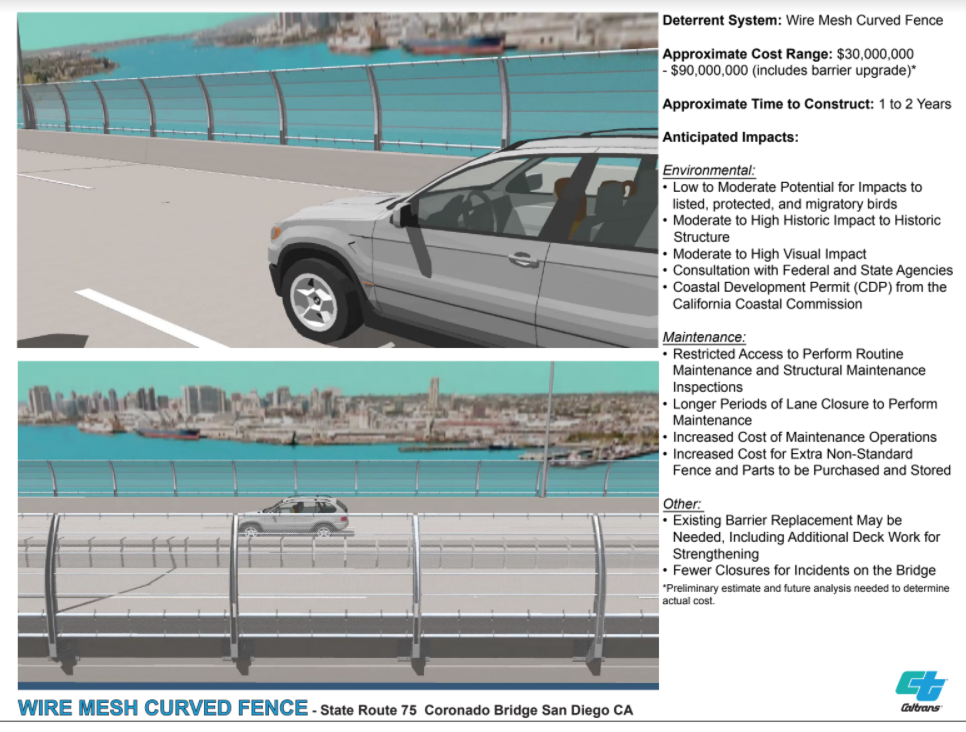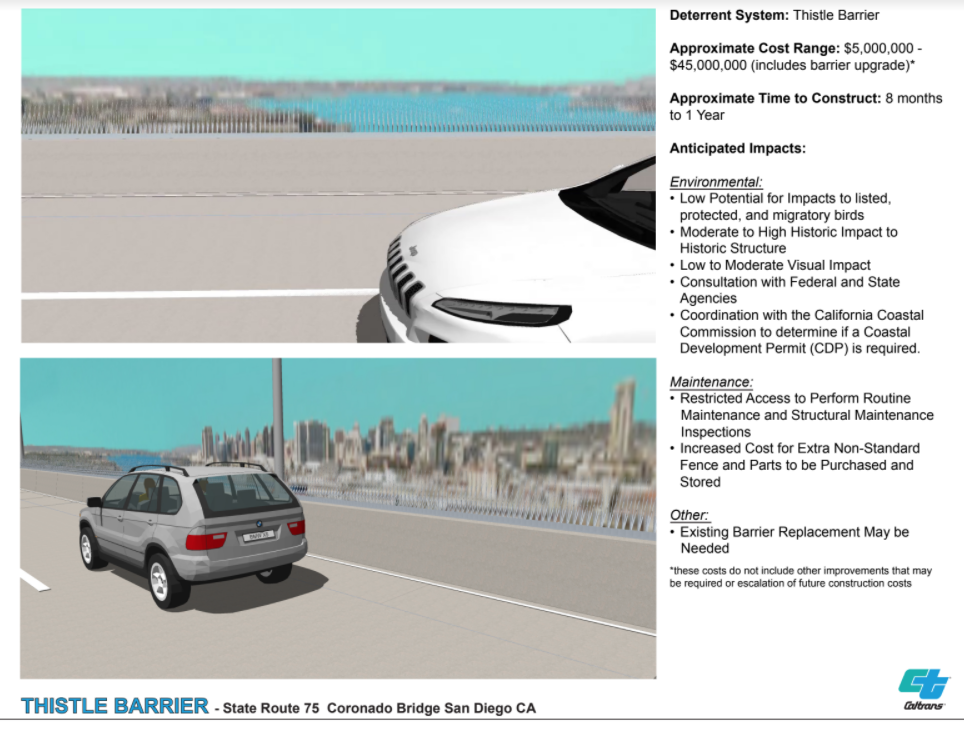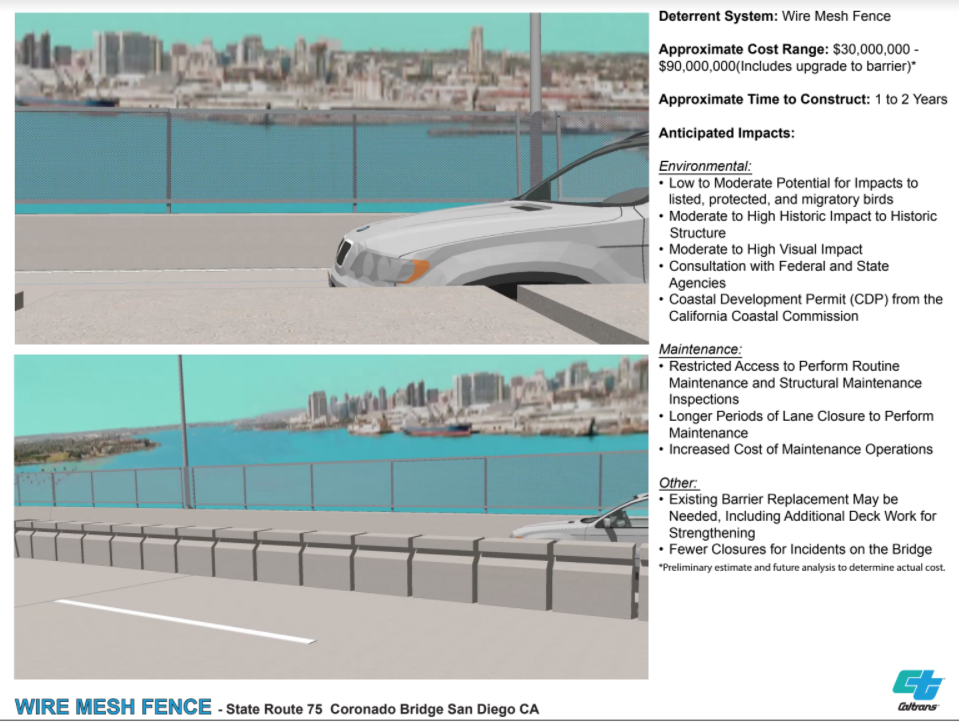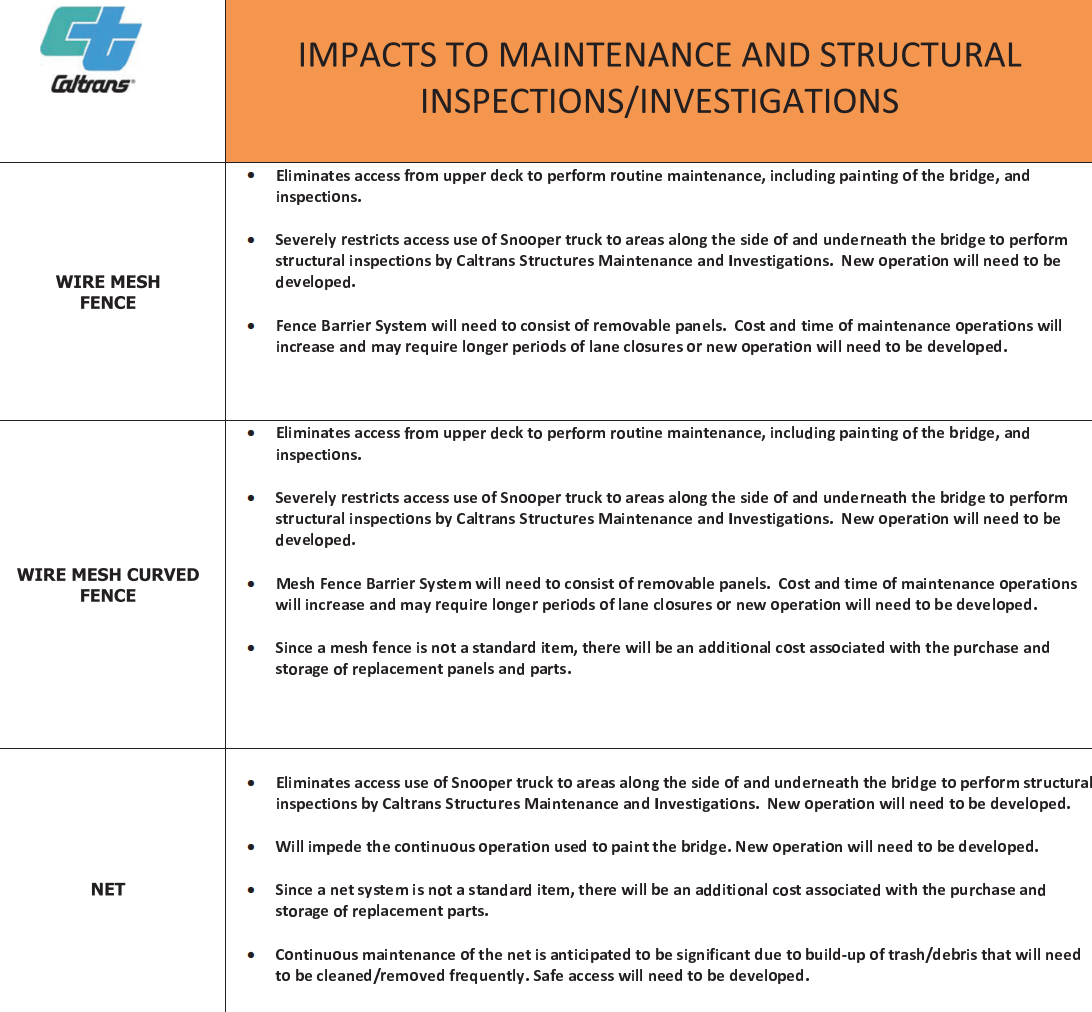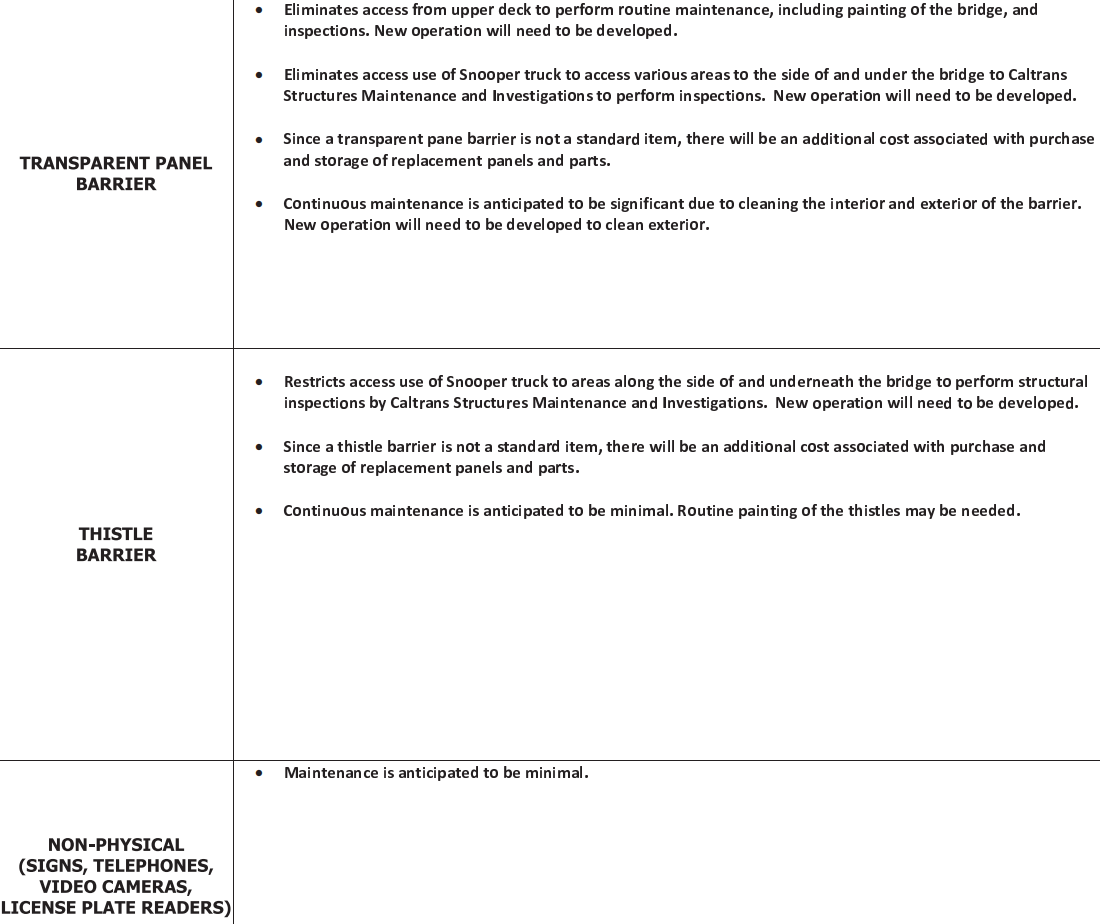The San Diego-Coronado Bridge is an San Diego landmark. Sadly, it is also a common jumping off point for individuals with their mind set on suicide. More than 400 people have jumped to their deaths, prompting local residents to petition Caltrans to consider a suicide deterrent. “A suicide barrier is a structure intended to deter people from attempting suicide by deliberately jumping from a high place.” [Wikipedia contributors] Advocates of a deterrent say it will be well worth its approximate $11 million price tag. Representatives from Caltrans seem to agree.
Caltrans manages more than 50,000 miles of California’s highway and freeway lanes, provides inter-city rail services, permits more than 400 public-use airports and special-use hospital heliports, and works with local agencies. Caltrans carries out its mission of providing a safe, sustainable, integrated and efficient transportation system to enhance California’s economy and livability, with six primary programs: Aeronautics, Highway Transportation, Mass Transportation, Transportation Planning, Administration and the Equipment Service Center. [from Caltrans website]
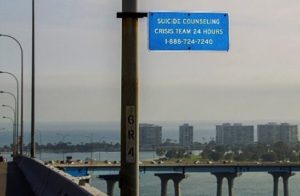
On Wednesday evening, Nov. 15, Caltrans held an informational open house at the Cesar Chavez Continuing Education Center (another open house had been held at the Coronado Community Center on Nov. 14). Caltrans District 11 Division Chief of Operations, Marcello Peinado, explained what ideas Caltrans has come up with and how they intend to help San Diego and Coronado residents with their concerns of suicide, attempted suicide and bridge safety measures.
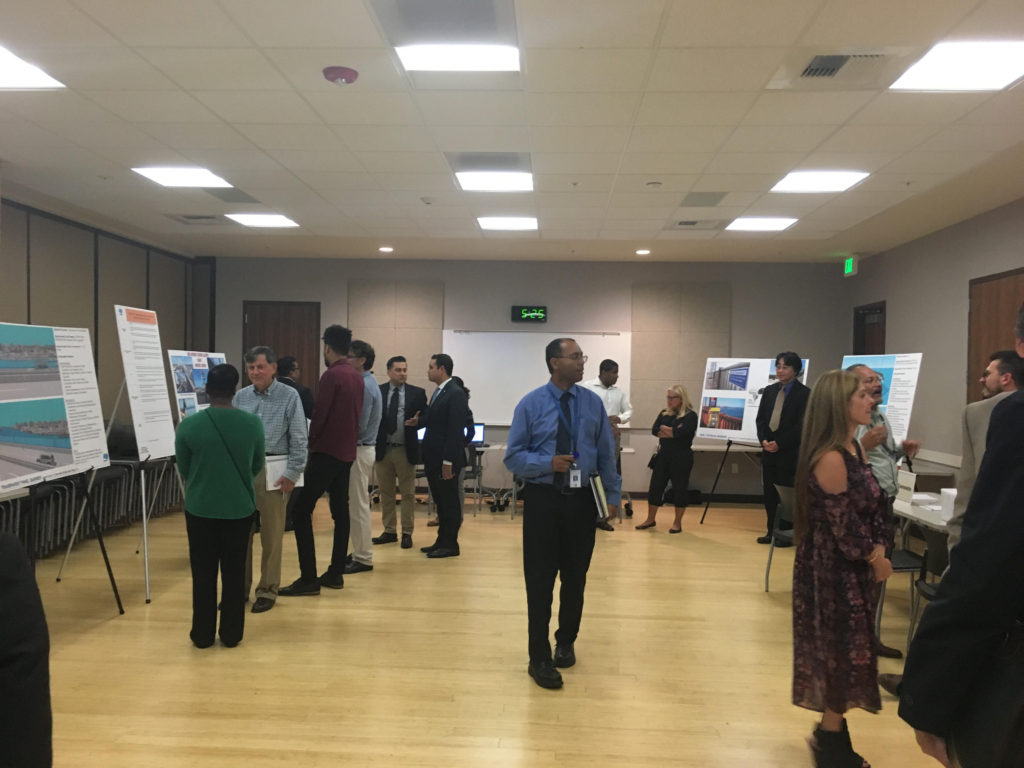
“When I was able to attend the open house this past August, there was obvious tension and electricity in the air. The open house last evening [held at Coronado’s Community center] and the one tonight, there is a positive outlook in people and good feedback… I think the San Diego and Coronado residents are happy we are doing something.”
Caltrans had set up around the room numerous display boards for attendees to examine and study. The options on display consisted of five barriers and one non-physical suggestion/preventative measure (signs, telephones, video cameras and license plate readers).
The five proposed barriers are made of different materials and take different forms. One of them is a fence-like metal structure, the other barrier takes the form of a net, another is a gate, with moveable panels, another one is clear (a see-through panel that unfortunately can be negatively affected by environmental factors like the wind), and lastly, the one that would prove to be the most effective (and least expensive) is the thistle barrier.
One of the Caltrans representatives on hand, Chris Semaan, explained, “The thistle barrier would protrude sharp ‘thistle like’ needles; they would align with the bridge. The thistles would deter an individual from jumping and would not cause any harm to the person or persons (maintenance crew) at hand. It would take between eight months, a year at the most, to install. Continuous maintenance is anticipated to be minimal and the projected costs would be lower compared to the other barriers suggested.”

Peinado said, “Hopefully this will be an improvement and a significant decrease in our suicide rates. What people may not realize is that this takes a lot of time and planning, there is so much maintenance and environmental factors to consider.”




